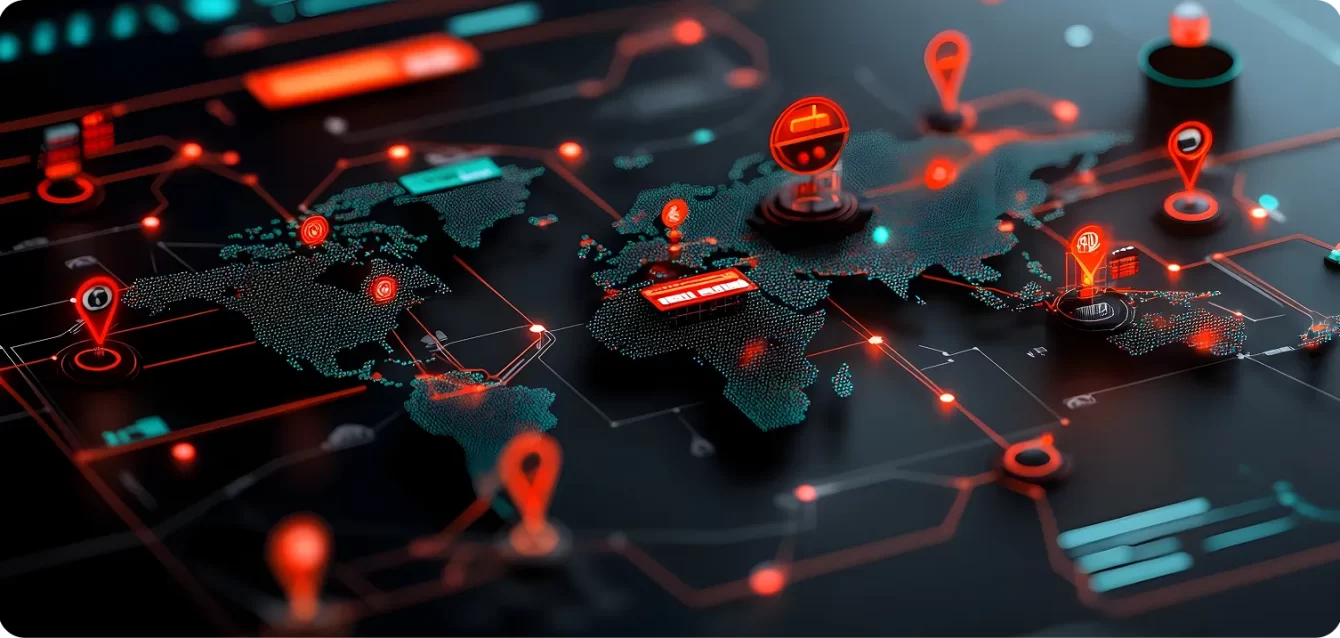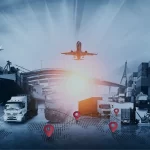“By 2035, supply chains are expected to become mostly autonomous, driven by a convergence of leading-edge technologies such as GenAI, autonomous vehicles, advanced robotics and collaborative
– EY
technologies.”
Supply Chain Automation has been a topic of interest for decades now, so what’s new?
That’s right, Supply chain automation has been evolving for decades, but what makes it particularly exciting today is the convergence of real-time data availability and the rapid advancements in AI, especially Generative AI. These technologies are not just making supply chains more efficient, they’re enabling systems to learn, predict, adapt, and even create new solutions in ways that were previously unimaginable.
Let’s take an example, most logistics professionals are familiar with common disruption scenarios like weather-related delays or supplier issues, but the real challenge lies in turning that awareness into proactive, automated responses. Traditional systems often rely on reactive workflows, where action is taken only after a problem becomes visible, like a late shipment causing stockouts or customer complaints. What’s needed today is the intelligent use of real-time data streams combined with predictive analytics to anticipate disruptions and respond before they impact the business.
This is where Intelligent supply chain automation comes into picture. Intelligent supply chain automation refers to the use of advanced technologies to streamline, predict and optimize supply chain operations. Unlike traditional automation, which focuses on repetitive and rule-based tasks, intelligent automation learns, adapts, and predicts outcomes to proactively address supply chain challenges.
This shift is turning supply chains into intelligent, self-optimizing ecosystems that can respond dynamically to disruptions, personalize fulfillment, and drive strategic value across the enterprise. Data lies at the heart of neural networks, and our services start with understanding your unique data landscape. We work closely with you to identify and collect relevant data sources, ensuring that your neural network models are built on a solid foundation. Our data scientists employ cutting-edge techniques to preprocess and clean the data, making it ready for training the neural network models.
The key components of Intelligent Automation are:
- Robotic Process Automation (RPA): Automates manual and repetitive tasks, reducing human errors and improving speed.
- IoT & Real-Time Tracking: Enables visibility into shipments,inventory levels, and warehouse operations.
- AI/ML & Predictive Analytics: Analyzes vast amounts of data to forecast demand, optimize routes, and detect anomalies. Anticipates disruptions and provides proactive solutions for risk mitigation.
Intelligent Supply Chain Automation has several key benefits for a supply chain professional like you. Here’s a quick look at how companies are already putting intelligent supply chain automation to work and creating impact:
- Intelligent Transportation Management: AI-powered Transportation Management Systems (TMS) optimize routes, freight loads, and delivery schedules to minimize delays, carbon emissions and reduce transportation costs.
- Smart Warehousing: Warehouses are leveraging AI-driven automation, guided vehicles (AGVs), and smart inventory systems to speed up order fulfillment and reduce human errors.
- Order Fulfillment: With customers expecting instant deliveries, Machine learning algorithms predict the fastest and most cost-effective delivery routes, while automation streamlines the picking, packing, and dispatching processes.
- Freight Procurement: AI tools analyze carrier performance, market trends, and other risks to identify freight procurement opportunities and to optimize freight costs while maintaining the required service levels.
We are heading towards a future where hyper-automation and cognitive supply chains will become the norm. AI-Powered Autonomous Supply Chains will evolve with Self-learning systems that optimize operations with minimal human intervention. Companies that embrace intelligent automation now will gain a competitive advantage, ensuring efficiency, resilience, and sustainability in the long run. The ability to predict disruptions, optimize operations, and drive efficiency will define the industry leaders of tomorrow.





